Taking it in stride
Here’s an update of the goings on at Red Moon Farm this past week.
The Harlequin bug is one that you’ve likely seen in your box a time or two. They’re incredibly lovely insects but they can really do a number on the Brassicacea family of plants. Harlequin bugs don’t munch holes in the leaves of plants, but instead suck fluids from the plant tissue. They leave yellow or white blotches on areas of leaves where they have been feeding. Harlequin bugs are in the family of insects with 5 different development stages. Here you can see a few different stages of this insect enjoying our Napa cabbage.
Heavy infestations can cause plants to wilt, turn brown, and die. These little guys were not causing too much of a problem until this weekend when we really saw an explosion in the population. They pretty much only feed on the Brassicacea family of plants which includes a huge number of the late spring crops: mustard greens, radishes, turnips, broccoli, cabbage, cauliflower, brussels sprouts, and the one we’ll all be the most sad over: kale. Yes, they’re even eating the kale.
Here you can see a little family of them enjoying the Scarlet Queen Turnips
And here you can see how they’ve quite thoroughly worked over the Giant Red Mustard Greens. In only 24 hours they went from vibrant, perky leaves to looking like they’ve melted into the ground. The cell damage is so vast that the plants can no longer photosynthesize and will soon die. The population really exploded over the past four days so we’ve been able to watch a fast and somewhat fascinating (though sad) transformation on these rows of crops. 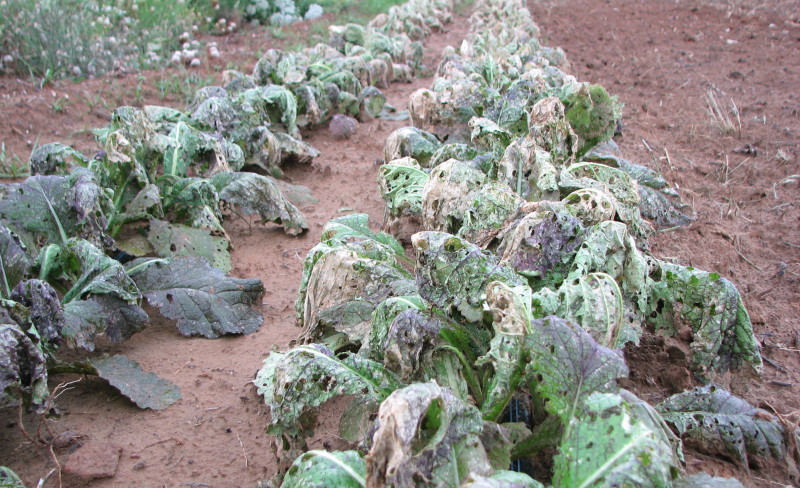
Our commitment to Organic farming has trained us well in how to naturally deal with a wide variety of pests. This one is a bit unique in that these types of insects suck juices, rather than chew holes. When combating chewing insects that get out of hand, we can spray the leaves with an organic approved bacteria, fungus, or natural pesticide that will deter or kill the insects, but with a mouth like the Harlequin bugs which pierces straight through the cell wall and sucks out the juices, there simply isn’t an effective organic approved pesticide. This is why organic farming is hard.
To prepare for this type of damage in organic farming we intentionally plant 3-5 varieties of each type of crop knowing that some may be more resistant to certain kinds of pests or various types of diseases or viruses. This is currently working to an extent. We have one variety of kale- the Red Russian- that the Harlequin bugs appear to not prefer as much as the other varieties. Also, one of our broccoli varieties is holding strong while the others are really eaten. The Hakurei turnips don’t have hardly any Harlequin bugs on them, while the Scarlet Queen turnips, only 24 inches away, are covered with them. So while most of the Brassicacea crops are kaput, we may still get a small harvest of a few select items that stay strong and resist.
Here’s our pretty row of broccoli that is almost unaffected by the Harlequin bugs.
So for now, we are thankful that this pest is coming at a time when the spring crops were mostly already on their way out, that the summer crops are still growing well, and that Harlequin bugs don’t eat beans, potatoes or tomatoes! Even if the present state of the garden doesn’t look too pretty out there, the future still looks great. Here’s a look toward what is ahead.
Healthy beans, potatoes, cucumbers, and in the distance to the far right, peppers! 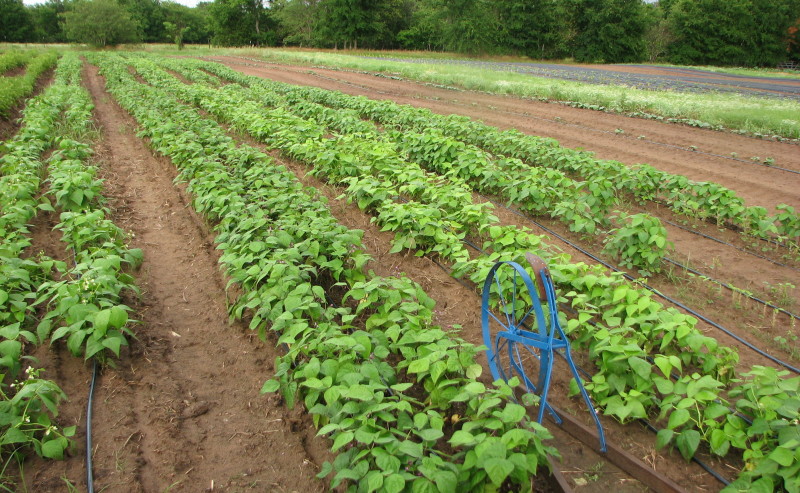
Justin checking the health of the tomato plants.
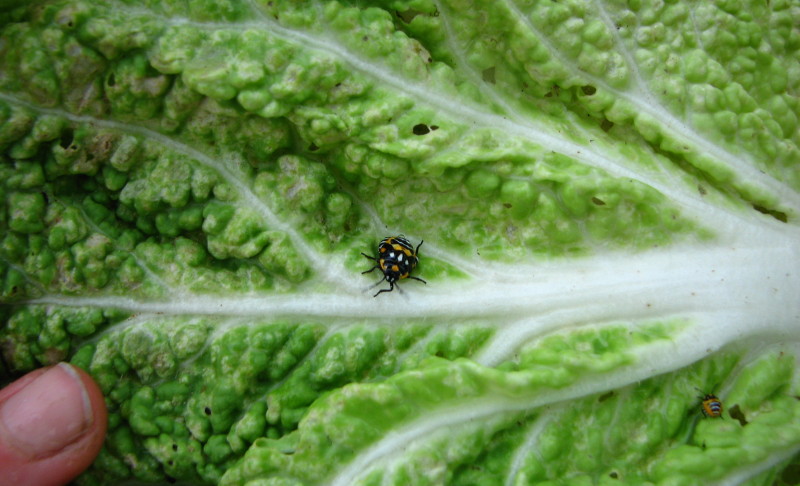
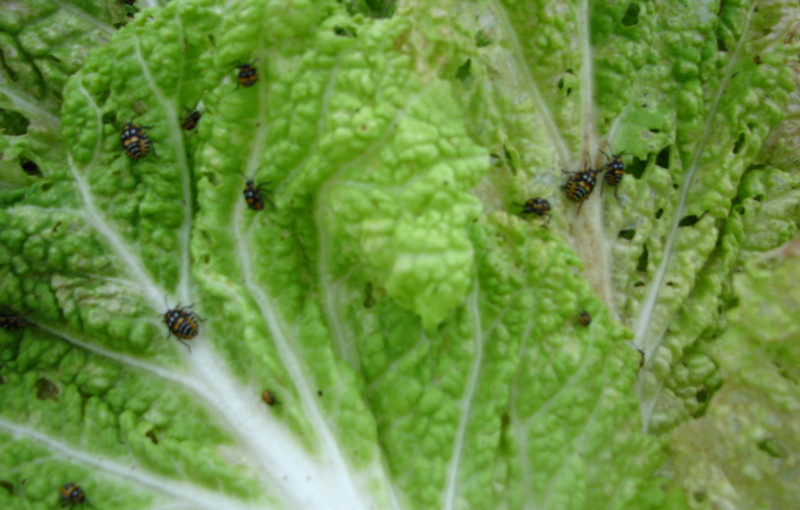
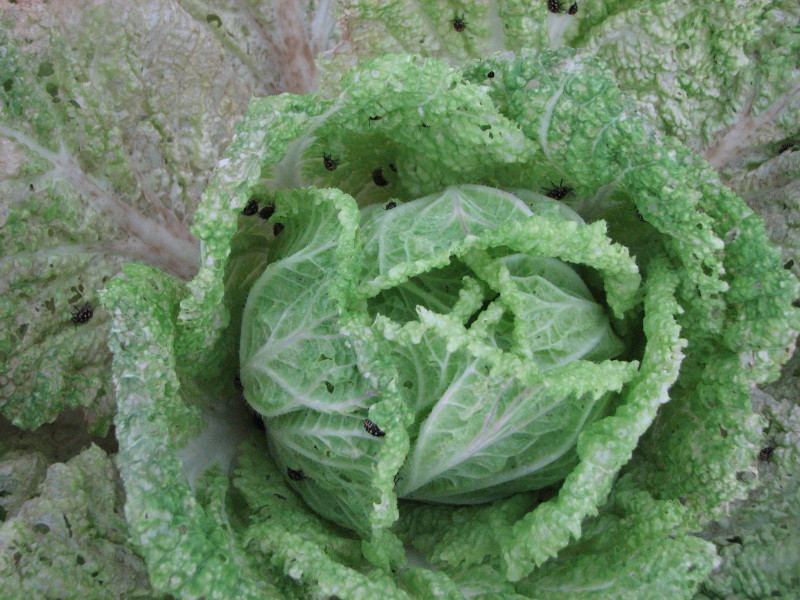
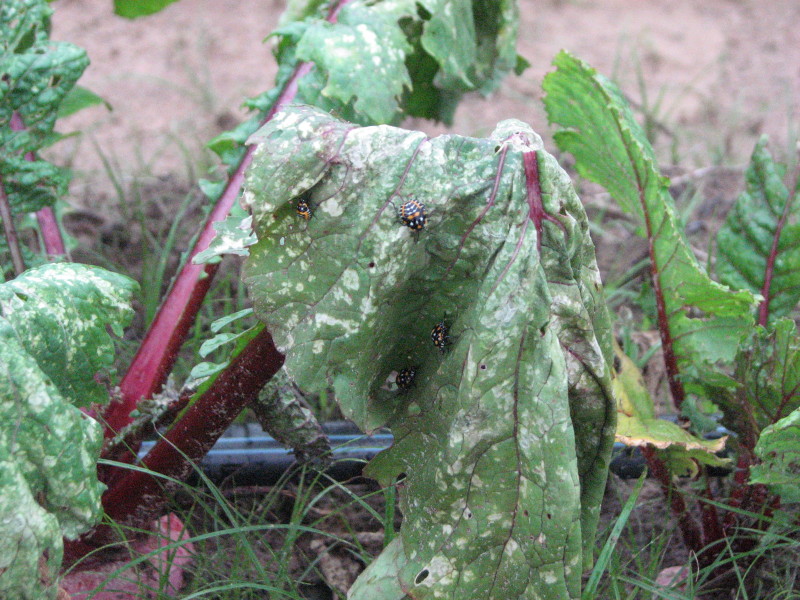
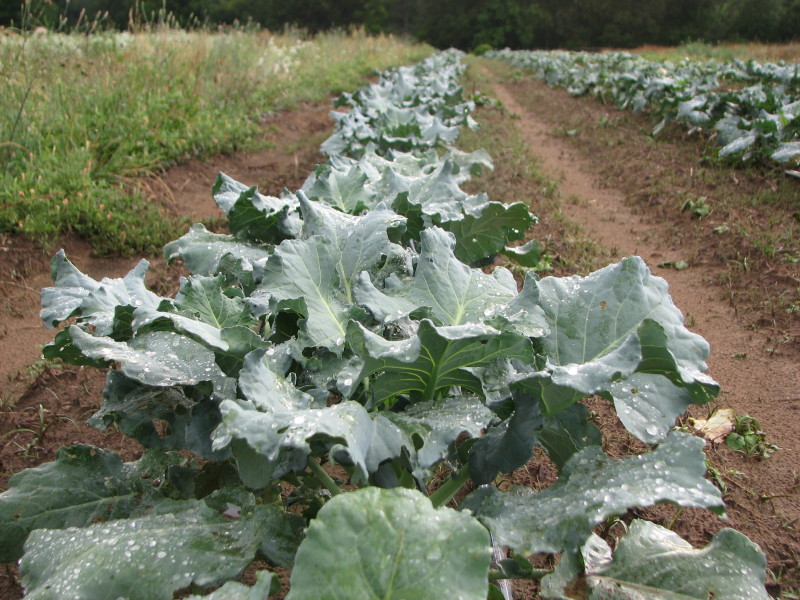
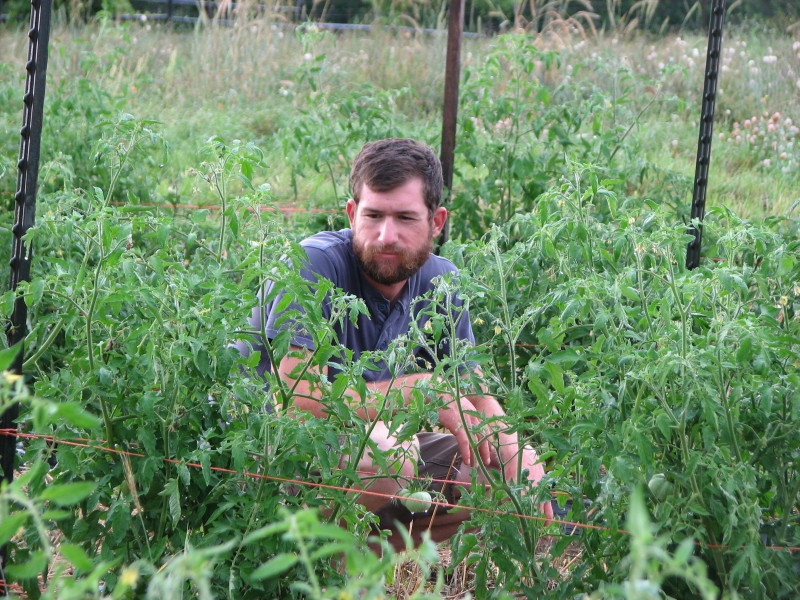
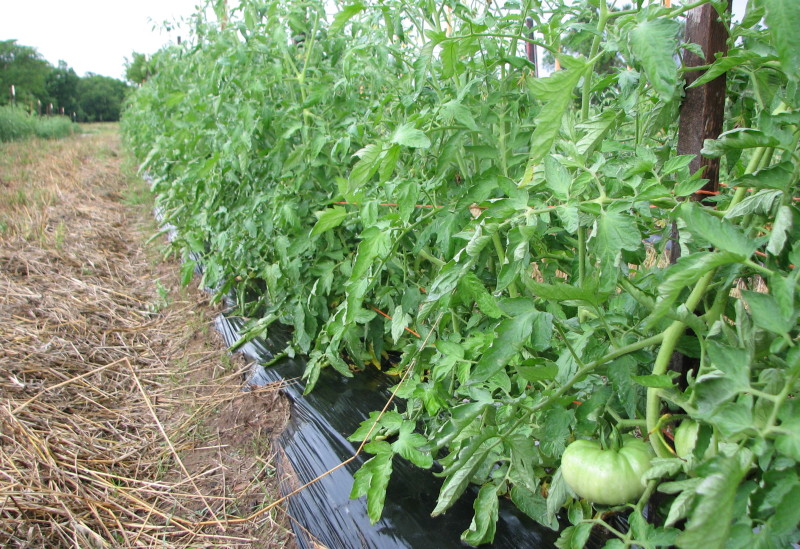
[…] of you who remember the spring of 2014 will know that there are no organic pest control options that eliminate these little jerks, and […]